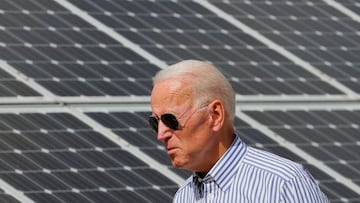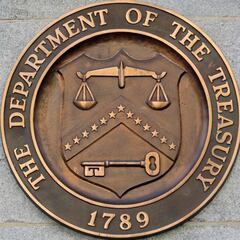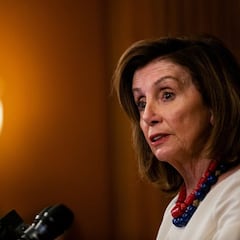Why won't there be a fourth stimulus check?
The slim chance for another has passed as the economy has defiantly rebounded, despite high levels of covid-19 that continue to ravage the US.


While previous waves of the virus, have been associated with a discussion of another round of stimulus checks, a fourth one will not be coming. This comes as many households feel with the effects of historic inflation and the vast majority of economic programs to support households have expired.
There has been no noise out of the Biden administration on the matter for some time as the president's hopes are pinned upon passing his Build Back Better legislation. That was supposed to include lots of support for families affected by covid-19, but is no closer to being passed than when it was first mooted in March 2021.
Related news:
- Are stimulus checks causing inflation in the United States?
- How much were the first, second and third stimulus checks and when were they sent out?
- Can I still receive the final California stimulus check if I am eligible?
- Tax Season 2022: documents the IRS will send and when will you receive them
No political will from those that matter
The largest reason why there will be no fourth check is that politicians at the top don't want it to happen. President Biden is bogged down with his numerous policy failures and the high inflation rate, the highest in years. Were another stimulus check to be passed, it is likely this value would increase even higher.
The US economy during Joe Biden’s first year in office https://t.co/gd9BTvLo6Z pic.twitter.com/US0QYa0MJi
— Al Jazeera English (@AJEnglish) January 27, 2022
Another result of this apathy has been the ending of most of the other pandemic-era financial support packages. The last Child Tax Credit payment was sent on 15 December, and since Congress has not passed the Build Back Better bill, there are to be no more monthly payments. Anyone who is laid off will have no federal pandemic unemployment programs to rely on or eviction moratoriums to protect them from losing their homes. The only help that has been extended is the student loan moratorium through 1 May, although moratoriums are not useful when $40,000 of debt needs to be repaid.
In response to this scant benefit landscape, Oregon Senator Ron Wyden said he is worried about “many vulnerable Americans" especially those "with young children [...] falling between the cracks.” He also noted that “January looks like a tough month with respect to omicron.”
Other members of the Progressive Caucus have continued to push for Build Back Better to have a wider social safety net. This would extend the Child Tax Credit, make childcare more affordable, and increase access to healthcare. But the inability for the administration to get the bill through both Democrat-controlled chambers means there is nothing in sight.
It all bodes rather poorly for Biden's hopes in the midterms come November.
Changes to the covid-19 situation
Another major change since the sending of the third stimulus check is the reason they were sent in the first place; covid-19. Lockdowns, restrictions and business closures necessitated government support, so people could keep earning without anyone really being able to go to work. Now, as 2022 is soon to enter its second month, there are much fewer restrictions preventing people from working.
That is not to say the US has beaten the virus, and far from it. Despite declining cases, deaths are still rising, with numbers not seen since the brutal winter of 2021. January 27 saw over 3,000 deaths for the first time in a year.
Related stories
But this has done little to convince the administration to send out funding. Their argument would be, "if people are working and the economy is back on track, why do we need to send out checks of thousands of dollars?"
Big economic numbers out today: US economy grew at an an annualized rate of 6.9% in the final quarter of 2021 -- bringing economic growth for all of 2021 to 5.7%, the fastest pace since 1984
— Jeremy Diamond (@JDiamond1) January 27, 2022
So there won't be another. Despite the raw covid-19 numbers looking bad, vaccines and built-up immunity have put Americans in a safe enough state to work, which is what it boils down to, really. With important elections coming up, the administration needs to find a way to sort one of voters' greatest fears, inflation, and more stimulus checks are not a route to fix that.

